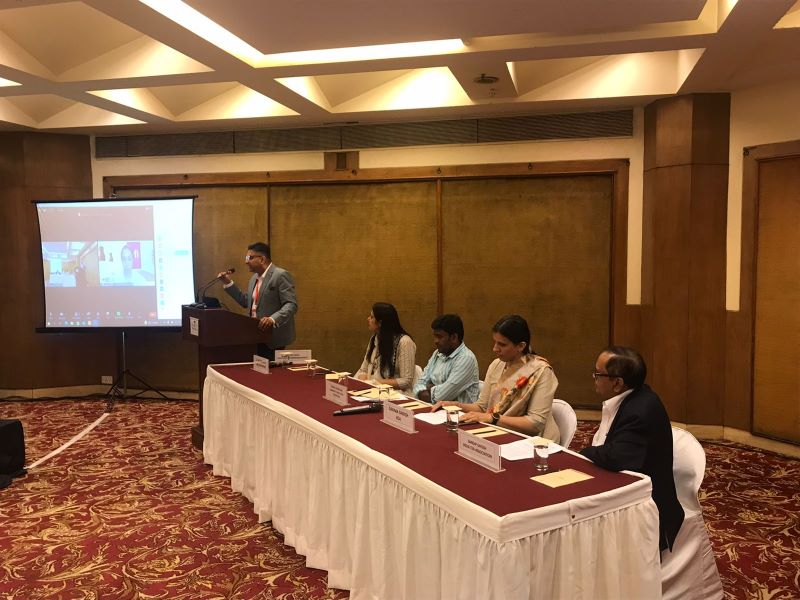New Delhi, November 16, 2022: Marking 10 years of Child Rights and Business Principles (CRBP), core partners - Save the Children and UNICEF, along with Partners in Change, convened multiple stakeholders - businesses and business leaders and children to showcase the evolution of CRBP in business practice.
Building on the Guiding Principles on Business and Human Rights, the Child Rights and Business Principles (CRBP) was the first comprehensive set of principles to guide companies and businesses on the range of actions they can take to respect children’s rights in the workplace, marketplace and community. Since its inception in 2012, over the past 10 years, the principles have served as an inspiration for many businesses, regardless of their size, sector or location.
A multi-stakeholder discussion was also held on Localization of Child Rights & Business Principles was moderated by Anindit Roy Chowdhury, Chief of Programmes, Save the Children India. The speakers in the panel included Yasumasa Kimura, UNICEF Deputy Representative, Programmes, Garima Dadaich, Associate Professor, Business Environment, Indian Institute of Corporate Affairs, Sandip Ghosh, Secretary, Sustainability, Indian Tea Association, Imran Khan, Executive Director, International Chamber of Commerce, India, R. Rutgra Devi, Owner AVA enterprise, Anthony Jayaseelan, Coordinator, Sanarpathy block level federation, Dindigul, Tamil Nadu, and Jahanvi Naidu, Human Rights and Inclusion Manager, Olam Food Ingredients, OFI Indonesia.
The discussion revolved around the objective of making businesses aware and educating them on the policies that they should implement in their business to abolish child labour practices. The aim of this conference was to advance the best business practices while acknowledging the enormous benefits received by the organizations in the past.
Leading the conversation, Yasumasa Kimura from UNICEF said that UNICEF remains committed to advancing this movement with public and private sector partners – not only to promoting this framework for businesses to respect and support children’s rights, but to apply these principles to help maximize the positive contributions and minimize negative impacts on children. “We are proud of our partnerships with key industry associations, business networks and platforms, and academic institutions and collectively we will continue to promote policies and practices to improve the social impacts of business as related to child rights.” he said.
Anindit Roy Chowdhury, Chief of Programmes , Save the Children, India said that the Child Rights and Business Principles that was created by Save the Children, UNICEF and UNGC, but commemorating it is not going to be enough, there’s a lot more that needs to be done. “We need to create functional and equitable collaboration among businesses, civil society organisations, governments, and children themselves, that promote business practices that value and ensure child rights. It is critical that we all work in partnership in addressing the various nuances of child rights in business supply chains and processes. Also, businesses cannot be looked at as the source of the problem, it is an inevitable reality of this world, and therefore making them responsible through dialogue, capacity development and collaboration is the critical way forward,” he said.
Speaking on the occasion Sandip Ghosh, Secretary, Sustainability, and Indian Tea Association “Child Rights and Business Principles have been foundational for the engagement with tea estate managers as they have enabled promotion of the most conducive business policies and practices in their estates”
He further added, “Over the last few years as the Indian Tea Association, we have focused on a range of actions that Tea Estate managements can take to respect, support, and advance children's rights, and to ensure any adverse impacts are prevented and addressed.”




















.jpg)



